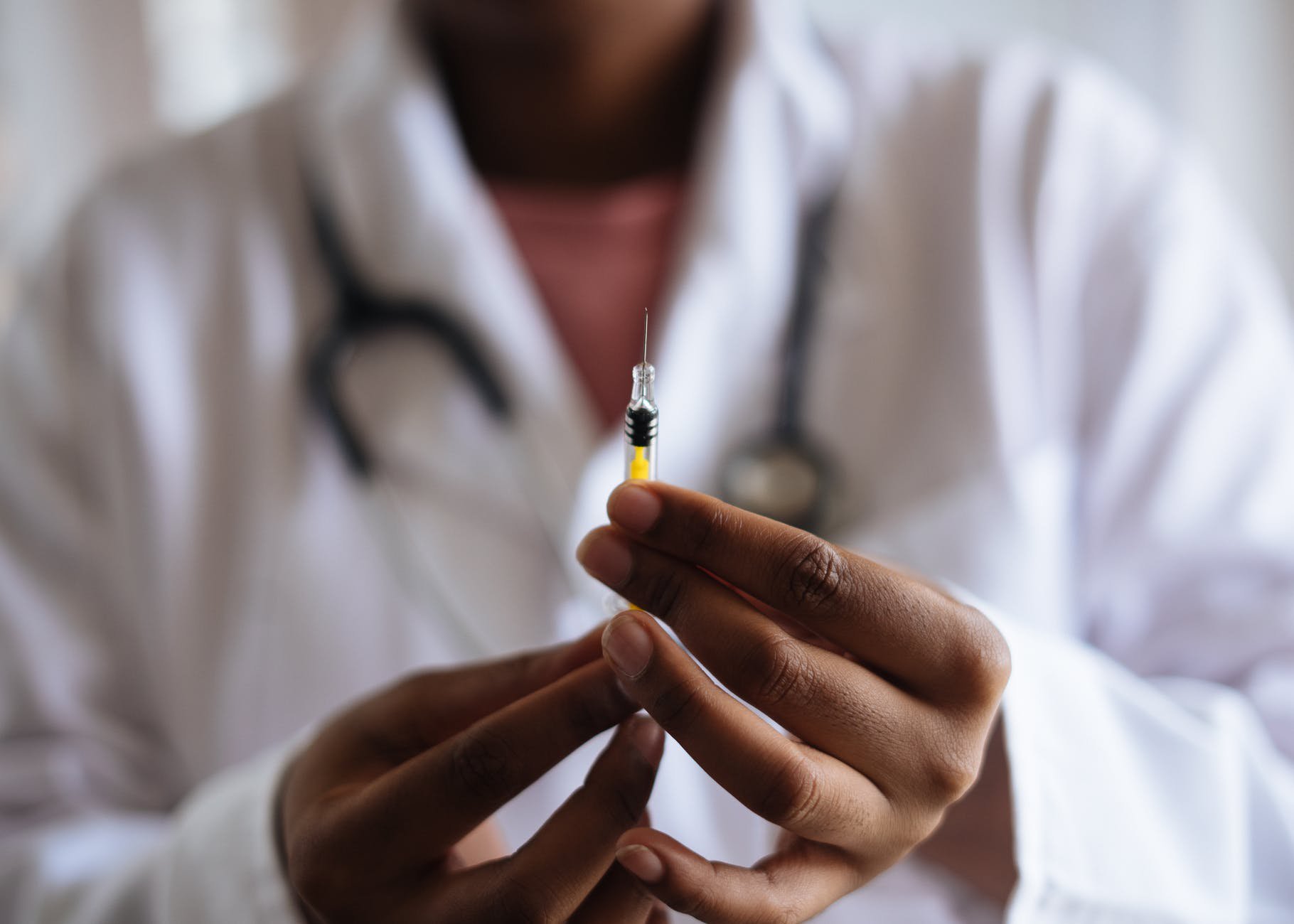Nursing in COVID-19 Pandemic Times. How Can a BSN Training Help Nurses Handle the U.S. Coronavirus Health Emergency?

2020 is shaking the world to its core and putting the healthcare professionals worldwide, most importantly nurses, face to face with a health challenge of tremendous proportions: the spread of COVID – 19, a novel Coronavirus, declared a global pandemic by the World Health Organization.
This pandemic doesn’t only put the nurses’ knowledge, skills, and morale to test. It puts our entire health system under scrutiny and makes everybody realize that the US nursing shortage and training need to step up very quickly in 2020.
Even though these are times when every bit helps, and even retired professional healthcare workers come to help, having a nursing workforce that is trained to a higher degree is an important step in fighting any global medical emergencies and viral threats – not just the COVID-19 one.
While the AACN does not discount ADN nurses’ preparedness, they promote BSN training as the optimal preparation for professional nursing practice for the last two decades.
In this piece, we will explore how a BSN training is directly linked to better patient outcomes, preparing professionals that are up and ready whenever a crisis strikes is of utmost importance.
The Challenges Nurses Face During the COVID-19 Pandemic

Nurses have always been in the first line of defense – that hasn’t changed, but it’s now happening at a much bigger scale.
The best way to minimize the risks and challenges is to ensure safe environments for nurses to care for their patients. However, that is sometimes easier said than done.
In this fight, nurses all around the globe are doing everything in their power to stop the spread of the virus and treat the already infected people. That usually isn’t a swift task because of the numerous problems they face.
As a nurse, these are some of the most pressing challenges you might encounter in your efforts to fight COVID-19:
1. Equipment Shortage
Healthcare professionals who are directly involved in the treatment of the new coronavirus must wear personal protective equipment (PPE), specially designed to prevent exposure to infectious materials.
This equipment includes masks (like N95 respirators or PAPRs), gloves, gowns, and goggles. The equipment is crucial in the battle against the pandemic, yet hospitals nationwide are experiencing severe shortages of PPE, with respirator masks being most needed.
In many instances, nurses have had to reuse equipment, particularly masks, which, in addition to being unsanitary, leaves them more susceptible to disease. There are tons of stories showing nurses improvising their personal protective equipment due to lack of equipment.
Unfortunately, we haven’t learned from past mistakes. The Ebola crisis made it clear how unprepared the American healthcare system is for a medical emergency of such proportions. One primary problem healthcare workers had to face during the Ebola outbreak was also related to personal protective equipment – the gowns they had to use were inadequate, not providing enough protection. Six years later, a severe lack of PPE is still a major issue endangering the safety of healthcare workers
In addition to the shortage of personal protective equipment, the scarcity of mechanical ventilators is also affecting more and more hospitals. Ventilators are potentially lifesaving medical equipment that helps patients who cannot breathe on their own by pumping air into their lungs. COVID-19 is a disease that affects the respiratory system, so because of the outbreak, the number of patients in desperate need of breathing assistance has skyrocketed. According to a 2018 analysis from Johns Hopkins Center for Health Security, the U.S. has around 160,000 ventilators, a number which, experts agree, might prove insufficient, mainly if measures to flatten the curve of the disease won’t work quickly enough.
According to a recent webinar by the American Hospital Association on COVID-19 around 960,000 out of the hospitalized patients admitted to the ICU might require ventilatory support. Of course, such projections are gross estimates, but they do highlight the massive discrepancy in demand and supply when it comes to life-saving medical equipment. Not having enough ventilators to work with not only makes it significantly harder for healthcare workers to do their job, but it might put them in the difficult position of having to choose which patients get to breathe and which don’t.
2. Misinformation
Misinformation is a huge threat to society, especially in a time of crisis. The sudden and near-constant stream of news reports about the outbreak can cause anyone to feel worried.
Additionally, more and more people are getting their information about the virus from social media platforms, where they can easily encounter a barrage of misleading and potentially threatening information.
Not only has misinformation caused harmful stigmatization and discrimination, but it has also fueled fear and anxiety among people, leading to horrific results. The protective mask shortage is also partially due to people trusting rumors over reputable sources. Not only have people bought protective masks in bulk (without an actual proven need to do so), some have even resorted to stealing masks and disinfectant from hospitals, leaving nurses more prone to the risk of catching the virus.
3. More Stressful Work Environment
As a nurse, such a severe medical emergency can put you in a stressful and challenging position in the workplace.
One example of just how stressful working as an RN can get is China, especially for female nurses. Many had to shave their head for personal hygiene and convenience. This is just one of the sacrifices the medical staff is making as they battle on the frontlines of the pandemic. But not the only one.
Per the NY Times the female nurses were also struggling to get basic menstruation supplies since the only supplies that could make it into the city were the ones cleared by the authorities (who were mostly male). When supplies were finally allowed, instead of tampons and pads, women got adult diapers, which only added an additional layer of frustration to the nurses. These incredible frustrations were only amplified by lack of supplies, inadequate equipment, and longer shifts.
The working environment for medical workers in the United States is also stressful.
As a nurse in a U.S. medical institution, you will likely have to work longer shifts in increasingly understaffed hospitals. In addition to that, you would have more patients to care for and a growing concern of interacting with patients who may have been exposed to the virus and potentially placing family and friends at risk. A combination of all these factors can lead nurses to experience burnout.
On top of that, as the virus spreads and more healthcare workers contract the virus or are quarantined, the burden on the healthy nurses will only increase. The spread of the COVID-19 further highlights what has been clear for years: the U.S. is facing a major nursing shortage.
Coronavirus places other stresses on the healthcare workers as well. From having to work in non-clinical spaces that were repurposed to see patients, to staff being called upon to serve roles they wouldn’t usually have to assume in order to fill workforce shortages – nurses can expect an increase in stress levels in their already stressful environments. And in the long run, this is not only going to affect nurses because fewer care providers also mean longer wait times for patients.
In the conditions of increasingly stressful work environments for nurses, the World Health Organization recognizes the immediacy and the importance of tending to the nurses’ mental wellbeing. The long stressful shifts they’re working and the tremendous human suffering they’re exposed to can surely take their toll on the nurses’ mental state. It is of utmost importance for RNs to be able to cope with the ups and downs of everyday life since the quality of the care they provide is mainly dependent on their own wellbeing
Find out more about nursing burnout and how to avoid it.
4. Increased Risk of Exposure
Registered nurses are on the frontlines of the coronavirus outbreak, so they work directly with infected patients.
Since coronavirus is highly transmissible and nurses aren’t always protected to the highest standards (due to the shortage of protective gear), they run a higher risk of contracting the virus.
Evidence from previous epidemics shows that healthcare workers are at a much higher risk than the general population of being infected. Being more susceptible to the virus, they also risk unknowingly infecting other vulnerable patients from the hospital, or their healthy family members. Hence contributing to the spread of the disease.
Hope for the best but prepare for the worst. In preparation for more advanced nursing roles, explore our online BSN nursing programs.
How Can BSN Help Nurses Fight This Pandemic?

As a nurse, you will be at the very heart of the prevention, containment and managing health emergencies. Extreme medical crisis situations, such as a pandemic, require a well-rounded set of skills that will help you fulfill your calling and save lives.
With BSN training, RNs have a higher level of expertise and are better equipped to provide expert help and guidance through devastating illnesses, including COVID-19.
BSN education takes the training of the ADN one step further by including an extra year and a half of in-depth training in social sciences, management, research, public and community health, and leadership. Hence, BSN registered nurses develop a better understanding of the cultural, economic and social issues that affect the patient and influence healthcare delivery systems.
Having a better understanding of the entire healthcare system and a more in-depth understanding of a patient’s overall history automatically helps nurses make better and faster decisions, make fewer errors and better guide the patients and their families. Hence, the push for BSN prepared nurses stands on solid ground.
Explore this BSN Guide and find out how getting a BSN degree can help both your career and your country.
What Is the Link Between BSN and Better Patient Outcomes?
That is not to say that ADN prepared nurses aren’t qualified to deliver high-quality patient care. Quite the contrary, they are professional and dedicated health workers. However, the American Association of Critical-Care Nurses (AACN) has advocated the need for a baccalaureate degree as the minimum prerequisite for professional practice for over 20 years.
That is largely because of all the evidence that indicates that higher nursing education is directly linked to better clinical outcomes, fewer medical errors and lower mortality rates.
A 2014 study conducted by researcher Olga Yakusheva from the University of Michigan, Yakusheva and her colleagues found that a 10% increase in the proportion of baccalaureate-prepared nurses on hospital units was associated with lowering the odds of patient mortality by 10.9%.
The results were corroborated by another 2019 study by Dr. Maya Djukic and her colleagues from New York University, which found that baccalaureate-prepared RNs reported being significantly better prepared than associate degree nurses on 12 out of 16 areas related to quality and safety, including evidence-based practice, data analysis, and project implementation.
According to the Robert Wood Johnson Foundation, studies have also proved the association between BSN hospital staffing and lower incidence of hospital-acquired infections(HAI). HAIs are serious and often preventable infections acquired from the hospital by patients admitted for other reasons. According to the CDC, annually, 1 in 25 US hospital patients is diagnosed with at least one infection related to hospital care.
By using their skills and knowledge acquired through BSN training, nurses are central to reducing the number of HAIs, which is exceptionally important now as hospitals are flooded with patients. They facilitate patient recovery and prevent hospital-acquired infections by ensuring all aspects of their nursing practice are properly conducted, but also through research, patient education and implementation of infection control practices.
Take the next step and become part of the difference the healthcare system needs in times of emergency.
Enroll in a BSN Program and contribute to better patient outcomes.

Some of the BSN training acquired skills that are critical in the COVID-19 pandemic are:
-
Better Equipped to Work in Changing Environments
BSN nurses are prepared to practice in a variety of settings, from home care and case management to busy ERs. Their extensive training makes it easier for them to adjust to any workplace, so they are generally better equipped to provide high-quality care, even in changing environments, which is paramount in times of a pandemic. From makeshift hospitals to working on the Navy hospital ship, nurses might come face to face with the impending necessity to work outside their usual environments.
Few nurses are as prepared to work in ever-changing surroundings as travel nurses. As the country is facing a medical crisis that will define the decade, travel nurse jobs are becoming available at an exponential rate nationwide. What makes them particularly important in this fight is their unique set of skills, the possibility to jump in quickly wherever they are needed and their innate abilities to learn on the fly and adjust to a new working environment with impressive ease.
-
Earned More Competencies to Handle Complexity
BSN programs provide specialization and further insight into the fields you’ve touched upon during your ADN studies. As a result, nurses learn more competencies that will help them manage more complex issues. That is especially useful in the times of major medical emergencies, such as COVID-19, when the complexity of the issues nurses have to deal with on a daily basis has increased exponentially. As the healthcare environment is growing in complexity, nurses need to be prepared to expand their professional roles.
-
Better Decision Making and Critical Thinking
An essential aspect of BSN training is an increased focus on decision making. This particular line of training teaches nurses to assess the situation correctly, no matter how complicated and to make better, faster decisions for the wellbeing of their patients. Solid critical thinking skills are more imperative than ever, especially with diseases becoming more complex and processes more evolved.
Nurses need to tend to patients while maintaining the highest standards of care and they need to do that in increasingly busy and stressful work environments. Higher nursing education will grant you the skills required to develop better plans of care and improve the quality of care you give to your patients, while also ensuring you’re quick on your feet and a strong critical thinker.
-
Patient Assessment
BSN programs typically provide a focus on patient education and community education, in addition to clinical and scientific courses. The combination of these factors will help you as a future nurse to make better patient assessments.
This skill is critical, especially in times of a pandemic, when increased numbers of people flood hospitals and nurses have to assess their situations quickly and accurately and provide care accordingly.
-
Better Communication with Patients and Fellow Healthcare Professionals
The Bachelor’s program develops to a greater extent the nurses’ communication and management skills, which prove particularly useful in critical situations.
In the case of COVID-19, as a nurse, you will have to collaborate inside and outside the hospital as there will be a lack of beds, a need for alternative spaces to care for those stricken, and the need to share supplies.
Ensuring communication with patients is also important since this is the most important part of establishing trust and creating a relationship between nurse and patient.
-
Leadership Skills
Strong leadership skills are especially important in work environments that involve high-pressure situations, such as nursing. Nurse leaders bring nurses together as a team, making sure they communicate efficiently with each other, doctors, patients and the patient’s families. Clear communication and collaboration are key to maintaining high standards of quality and safety.
The need for nurse leaders to step up is important now more than ever. With a healthcare system that is under an immense amount of pressure, with worked out, worried and vulnerable nurses, it is up to the leaders to keep morale up and make sure treatment teams work together to offer the best possible care to increasing numbers of patients. In the pandemic, leadership is far more than just paperwork – it’s a way to make sure nurses stick together for the sake of their patients, especially as the conditions get more extreme.
Many nurses are already leaders, be it on the job, in their families or their communities. It takes a strong person to care for others so selflessly. BSN programs take these innate abilities one step further by introducing nurses to the concepts of professionalism, management and leadership, which will help them become true leaders in their field – to their own benefit and to the benefit of the entire healthcare ecosystem.
It is better to be prepared than to be afraid. Find out more about how becoming a BSN Nurse will take your skills to the next level.
What Can Nurses Do Right Now, Until They Advance Their Education?

Be Precise
From adjusting your facemask to fit the shape of your face perfectly and making sure your personal protective equipment is donned and doffed correctly, to implementing a handwashing/disinfecting ritual – no step is too small.
As a nurse, you’ll have to pay the utmost attention to executing every single detail of the hospital routine to perfection because that considerably reduces the risks of spreading the infection.
Stay Precocious and Prepared
RNs should wear protective equipment: protective masks, gloves, gowns and goggles, especially when dealing with patients who are infected or are suspected of carrying the virus. Hospitals and other health settings are continually developing strategies to ensure their staff’s access to PPE.
However, their efforts can be limited at times by the widespread shortage and hoarding of such equipment.
Nurses must also pay close attention to their institution preparedness plans that include infection control procedures and protocols for the early identification, containment, and care of symptomatic patients.
Stay Informed
Informed nurses can put baseless fears to rest.
Nurses are a vital source of information for the patients as well as for communities in general, so people normally trust their input and listen to their suggestions. Hence, nurses must always stay at the top of the game and use reputable sources of information because informed nurses lead to informed patients who choose knowledge over panic.
Become an Example
Nurses can encourage appropriate preventive measures and can generally help people make sense of the whole situation. Leading by example and encouraging people to follow in their footsteps, nurses can guide people on a path of practicing proper prevention techniques and following the precaution guidelines.
Be a Voice of Reason
In times of crises when there is lots of misinformation and misinterpretation going around, nurses share the responsibility of ensuring that communication is happening between the healthcare system and the community. By being a voice of reason in society, nurses can help alleviate anxieties and stop people from overreacting and not resorting to panic.
Stay Calm and Vigilant
This is an especially trying time for the RNs. More patients are coming in, the risk of infection is spiking. Extensive training and education is a great way for nurses to remain calm during their work amid infected patients.
Have an Enhanced Capability to Work Under Stressful Conditions
The spread of the virus will have nurses working long, stressful shifts during which they’ll be exposed to a great deal of human suffering and pain. Another thing that adds to their stress is the fact that they unexpectedly have to work with large numbers of sick people. They need to be able to take care of their mental wellbeing in order to be able to offer the best quality care possible.
Display Professional Judgement
Nurses are in a sensible position of having to assess risks and make decisions accordingly. More people will come to the hospital, some truly infected, others just panicked and nurses must be able to separate the two crowds.
Become Resilient
Having to deal with everything being thrown at them and still return the next day, to do it all over again is definitely challenging, but it’s a skill nurses must have (because life as an RN doesn’t get easier, especially in critical times)
Become Leaders
Nurses’ role in preventing and containing widespread illnesses is pivotal. In such extreme medical situations, RNs are stepping up and taking responsibility because their involvement can (quite literally) make the difference between life and death.
By advancing your studies and getting a BSN degree, you will develop the leadership skills and competencies that will make you an invaluable asset to your healthcare institution.
Be Flexible
In some instances, this might mean working in unfamiliar circumstances or surroundings or working in clinical settings outside their usual practice for the benefit of their patients and of the community as a whole. Also, nurses have to think ahead and always be ready for a continually changing working environment.
Be Brave
In times of crisis, most people do their best to run away from danger and tragedy. Nurses, because their main mantra is helping people under any circumstances, run towards it.
Be Able to Face Unpredictability
Any major medical emergency, a pandemic all the more so, comes hand in hand with a great deal of panic and unpredictability. Being ready for anything the situation might throw at them is an important competence for nurses.
Discover everything you need to know about getting your BSN Degree.
What Does the Future Hold for Nurses After the COVID-19 Pandemic?
Being the frontline of defense, nurses selflessly do everything in their power to prevent, inform, stop the spread of disease and treat patients. That is no easy task.
They are faced with problems and encounter risks, but the hardships only strengthen their desire and conviction that they must help people, that on their shoulders lies the fate of an entire healthcare system.
Because pandemics are unpredictable, now is the best time to reinforce the need for practicing proper hygiene, using protective equipment, engaging in a plan, and becoming informed of ethically sound policies and practices. It is also the best time to become a BSN educated nurse. For your sake and for the sake of the healthcare system.
How Will Increasing Your Level of Education Affect Your Role in the Future of Nursing?
This pandemic clearly exhibits how severe the nursing shortage is in our country. We must take this lesson that we’re learning the hard way and prepare for future viral threats. Unfortunately, it is certain that COVID-19 is not the last major medical emergency we’ll encounter so we need to be better equipped to handle them better.
Healthcare is and will be crucial to the survival and wellbeing of any country. So if you’re looking for the opportunity to make a difference and you want a job that’s secure, stable and safe employment-wise – nursing definitely ticks all the boxes. If you’ve been searching for a reason to get a nursing degree, remember the COVID-19 pandemic, the helplessness, and chaos it brought and go to school to become a nurse. The country’s healthcare system needs you. Greatly.
Find out more about nursing in these tumultuous times from the experience of a Nightingale College graduate who became a Registered Nurse during Covid-19 and is on the frontlines in the fight against this pandemic.
Do you want to do more for your country? Enroll in our online RN-to-BSN program and help elevate healthcare in as few as 12 months.
If you want to become a nurse, now’s the time to contribute to your country. Enroll in a BSN program and join the fearless nurses on the front line of defense against global health emergencies.

